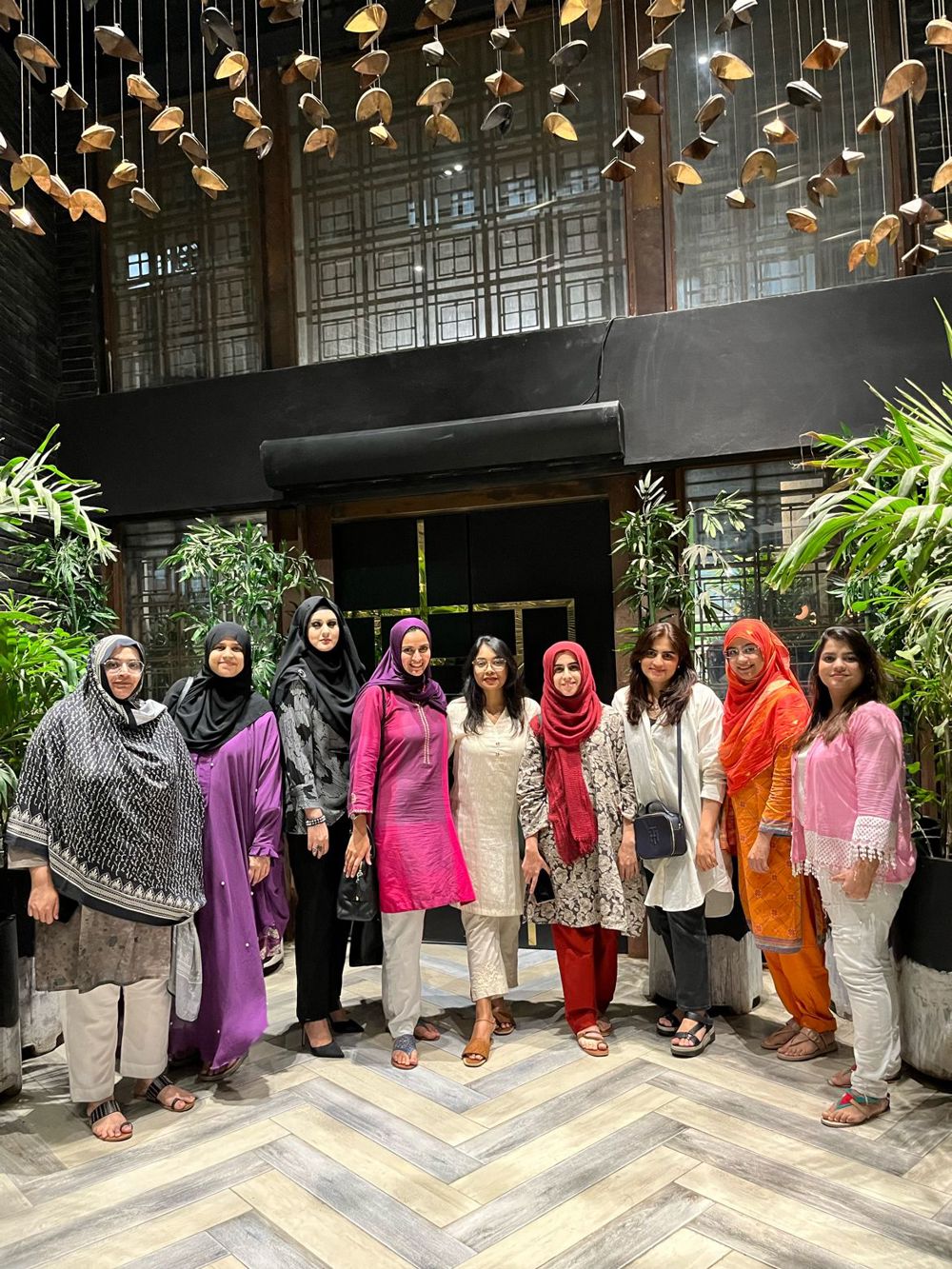The power of venture philanthropy
Brigit Helms, executive director of Santa Clara University's Miller Center for Social Entrepreneurship makes the case for a stronger impact ecosystem to support for-profit for-good startups
Wednesday, 12 June 2024

Brigit Helms, executive director of Santa Clara University's Miller Center for Social Entrepreneurship makes the case for a stronger impact ecosystem to support for-profit for-good startups
Wednesday, 12 June 2024

 Brigit Helms is a leader in global development, financial and economic inclusion, economic policy, and social entrepreneurship. She was named executive director of Santa Clara University's Miller Center for Social Entrepreneurship in 2020 after three decades working across more than 45 developing countries in Africa, Asia and Latin America, for a range of public and private organisations including global development company DAI, the World Bank, the Inter-American Development Bank, and McKinsey & Company. Brigit has a Ph.D. and M.A. in development and agricultural economics from Stanford University; an M.A. in Latin American studies and international economics from the Johns Hopkins School for Advanced International Studies; and a B.S. in political science from Santa Clara University.
Brigit Helms is a leader in global development, financial and economic inclusion, economic policy, and social entrepreneurship. She was named executive director of Santa Clara University's Miller Center for Social Entrepreneurship in 2020 after three decades working across more than 45 developing countries in Africa, Asia and Latin America, for a range of public and private organisations including global development company DAI, the World Bank, the Inter-American Development Bank, and McKinsey & Company. Brigit has a Ph.D. and M.A. in development and agricultural economics from Stanford University; an M.A. in Latin American studies and international economics from the Johns Hopkins School for Advanced International Studies; and a B.S. in political science from Santa Clara University.
The term ‘venture philanthropy’ sounds like an oxymoron because ‘philanthropy’ is all about giving and impact, and ‘venture’ is all about profit and returns. But it is this tension and balancing act that creates the beauty of venture philanthropy.
Approaching philanthropy through an investment lens — honouring both goals simultaneously — can lead to outcomes beyond either a philanthropic-only or an investment-only approach. The whole is greater than the sum of its parts.
Instead of seeing people as either charitable causes or a source of financial returns, venture philanthropy overlays these two lenses, funding nonprofit and for-profit impact entities that pursue a triple bottom line — social, environmental, and financial — without requiring a commercially competitive financial return on investment.
Unlike the one-year grants that characterise most charitable giving, venture philanthropy funding typically extends over several years. This more patient financing allows enterprises to tackle more complex challenges and through their extended engagement, funders become more involved in providing strategic guidance to their portfolio companies.
Venture philanthropy dons the mantle of risk in a way that neither traditional philanthropy nor traditional venture capital can afford to do.
This patient, flexible capital is ideal for earlier-stage entrepreneurs and startups that would otherwise be too risky or costly to attract other types of impact capital. In this way, venture philanthropy is catalytic in building nascent impact ecosystems.
By nurturing early-stage social enterprises, venture philanthropy can help fill the investment pipeline with businesses as they scale, up to the point where they can attract impact investors with lower risk tolerance. By so doing, venture philanthropy promotes the development of a robust impact ecosystem.
"We believe venture philanthropy can be a powerful tool to unlock transformational social change, and the Middle East is ripe to develop this impact ecosystem."
Brigit Helms, executive director of Miller Center for Social Entrepreneurship
My organisation, Miller Center for Social Entrepreneurship at Santa Clara University, strongly believes that the nurturing, patient capital of venture philanthropy, which is willing to assume risk and invest in the long haul, has the potential to unlock transformative change.
This is why, in 2020, we created Miller Center Capital: an impact-first debt fund that catalyzes capital for social enterprises in our Miller Center community, almost 80 percent of which are women-led and/or locally led.
Over a period of four years, we’ve invested in 29 enterprises, catalysing US$19.7m in capital, and improved 1.3 million lives.
We see tremendous potential for the entire impact ecosystem, including venture philanthropy, to address issues of importance throughout MENA. To this end, we are starting to work more frequently with other accelerators, social enterprises, and impact investors in the region.

CaterpillHERS is a digital learning platform and accelerator building entrepreneurship and career accelerator programs for women in Pakistan
For example, we partnered with CaterpillHERs, a digital learning platform and accelerator based in Pakistan that builds entrepreneurship and career accelerator programs for women.
They also provide resources and networking opportunities for donors and corporate social responsibility (CSR) professionals in the Middle East, including local conferences, tech meetups, and other networking events put together by themselves and partner organisations.
To-date, CaterpillHERs has reached 2.5 million individuals across Pakistan, including in remote areas, and has trained, empowered, and advanced the careers of hundreds of women — kickstarting and scaling their entrepreneurial journeys and equipping them with the skills and confidence to thrive professionally.
Other organisations in our portfolio are: Deevabits, which distributes off-grid solar technology via local entrepreneurs serving rural communities across Kenya; Warc Africa, which provides inputs, training, and market access to farmers, primarily maize growers in Northern Ghana; and Awaaz.De, which digitises microfinance to make financial services more affordable, comprehensive, and user-friendly for last-mile customers in India.
Across the MENA region, which faces many social and environmental challenges, the opportunity for social entrepreneurship to foster resilient communities and positive change is clear.
Currently, less than 1 percent of venture funding goes to women-led ventures in MENA — despite the mighty and growing base of social entrepreneurs ready to absorb capital and begin to address frontline issues, like climate resilience and women’s economic power.
At Miller Center, we believe venture philanthropy can be a powerful tool to unlock transformation social change, and the Middle East is ripe to develop this impact ecosystem.
Indeed, according to a new research report by Circle partner Pearl Initiative and Circle member and next-gen philanthropist Lynn Zovighian, nearly half of next-gen donors in MENA are using impact-first investing and other non-traditional methods of giving.
What are you waiting for? Now is the perfect time to put the range of impact-first, non-traditional, and socially aware funding options into action. I hope you will explore and fund social enterprises of interest to you personally. When we support organisations individually and collectively, we all win.
Others successful social enterprises operating in the MENA region.
To find more organisations like this, search the Circle Index, our database of regional funders, nonprofits, and social enterprises.
It's a good idea to use a strong password that you're not using elsewhere.
Remember password? Login here
Our content is free but you need to subscribe to unlock full access to our site.
Already subscribed? Login here